Mental Performance Accelerator
I led the strategy, research & design of a mobile app for amateurs and professional athletes.
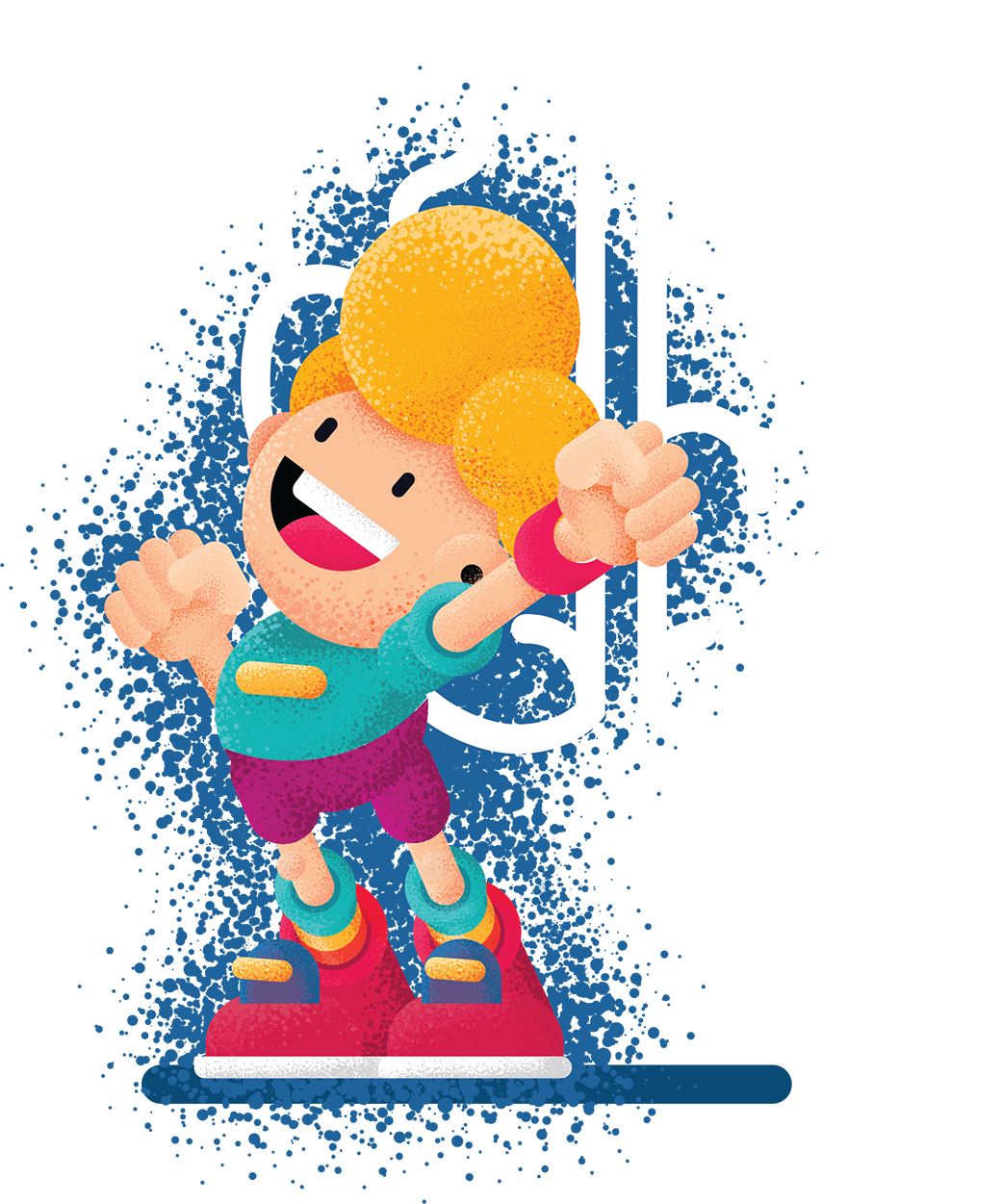
Meet
The customer
Ramdam Coaching is a swiss company providing coaching to high performers, such as elite athletes or business entrepreneurs. The company focuses on providing training plan with a specific focus on enhancing the mental edge of individuals around the world.
personas
Understanding the user
Instead of just painting a portrait, I asked "why" several times until I really understood the users jobs to be done
The typical profile is a 19-28 y.o. athlete with high ambitions and the willingness to complete a career at the highest level which they will be proud of.
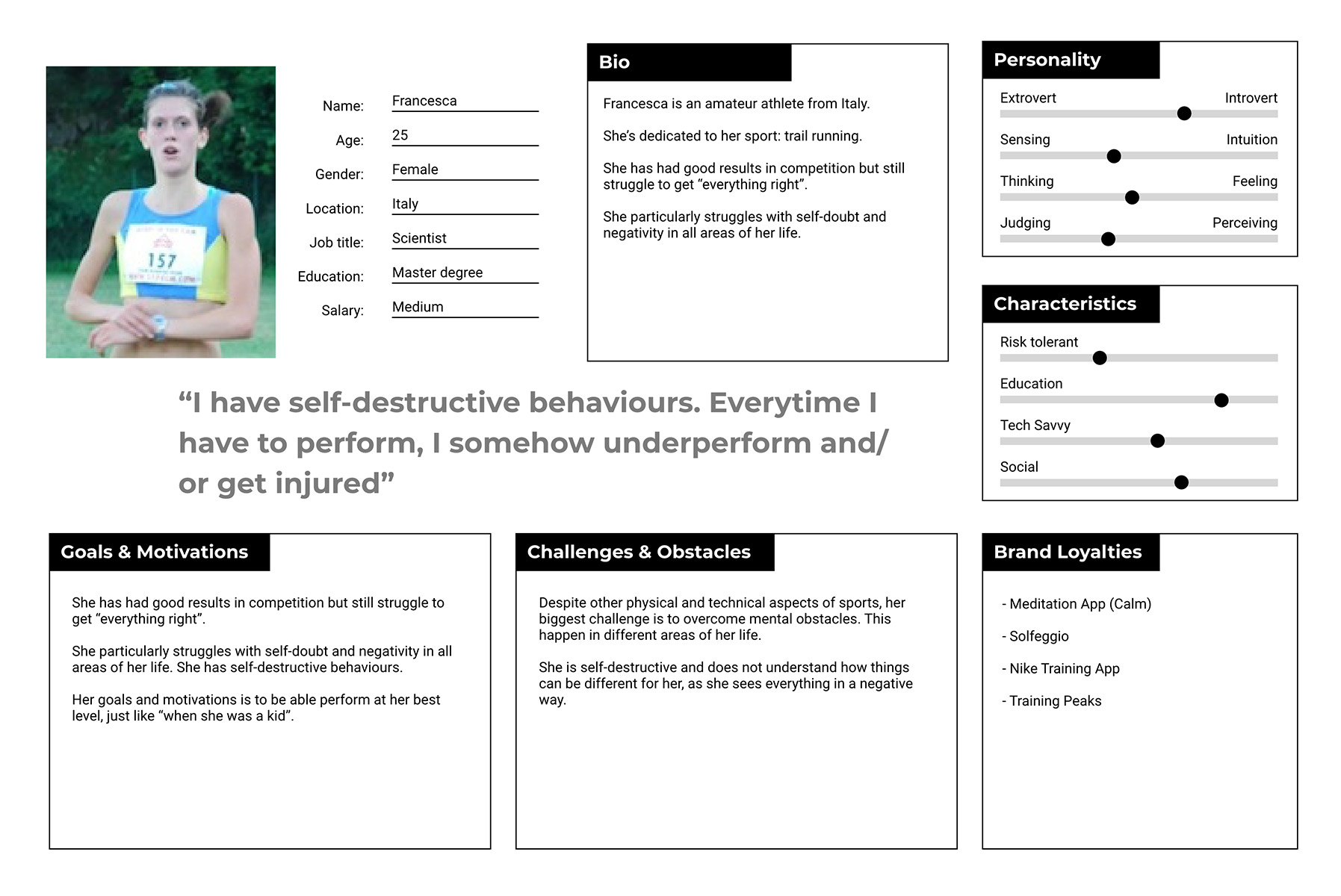
Getting a picture of what's inside an athlete's head
Grasping the inner narrative
What's inside your head ?
"I want to reach my full potential, be my 100% on d-day and become the best version of myself"
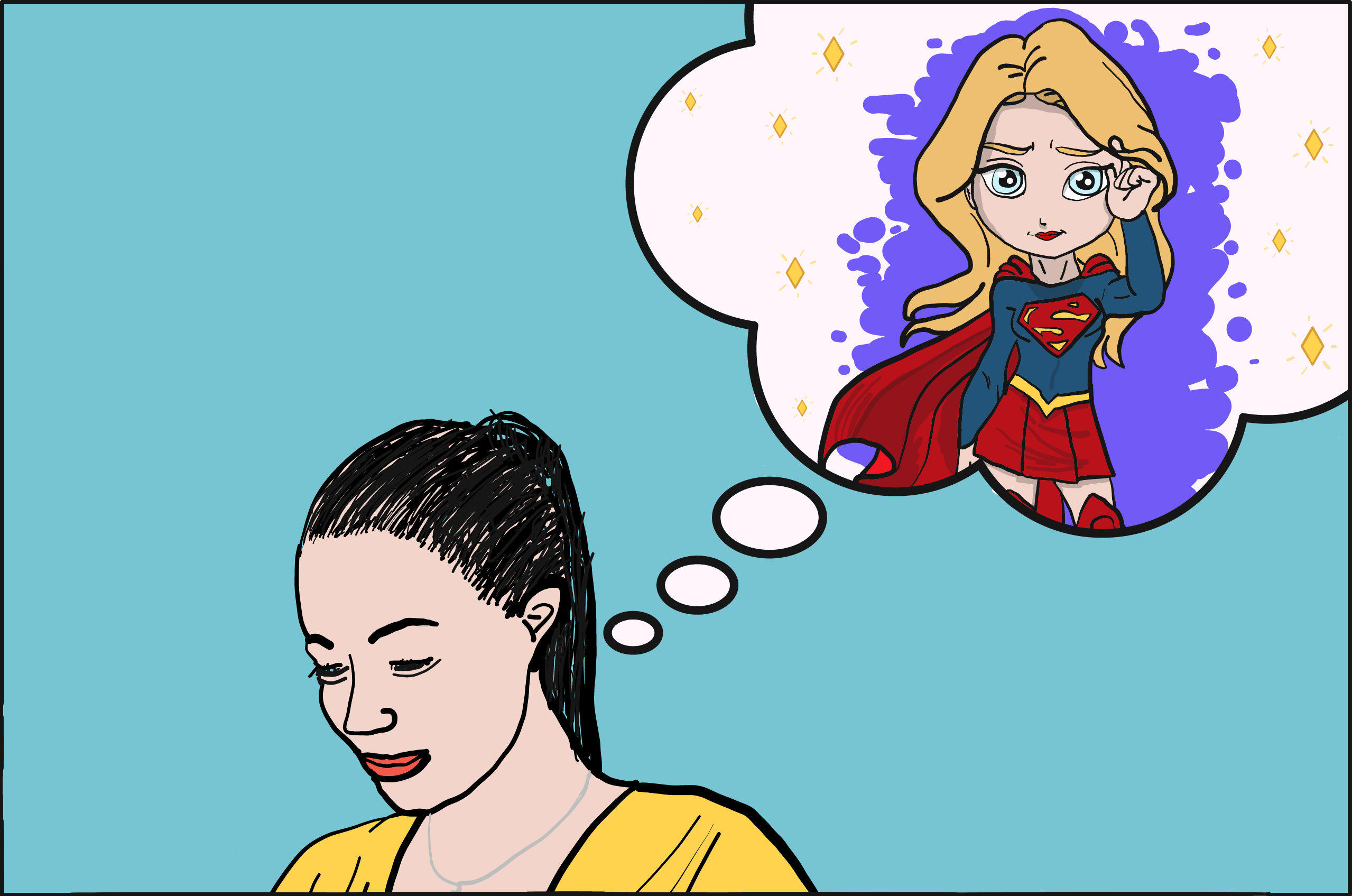
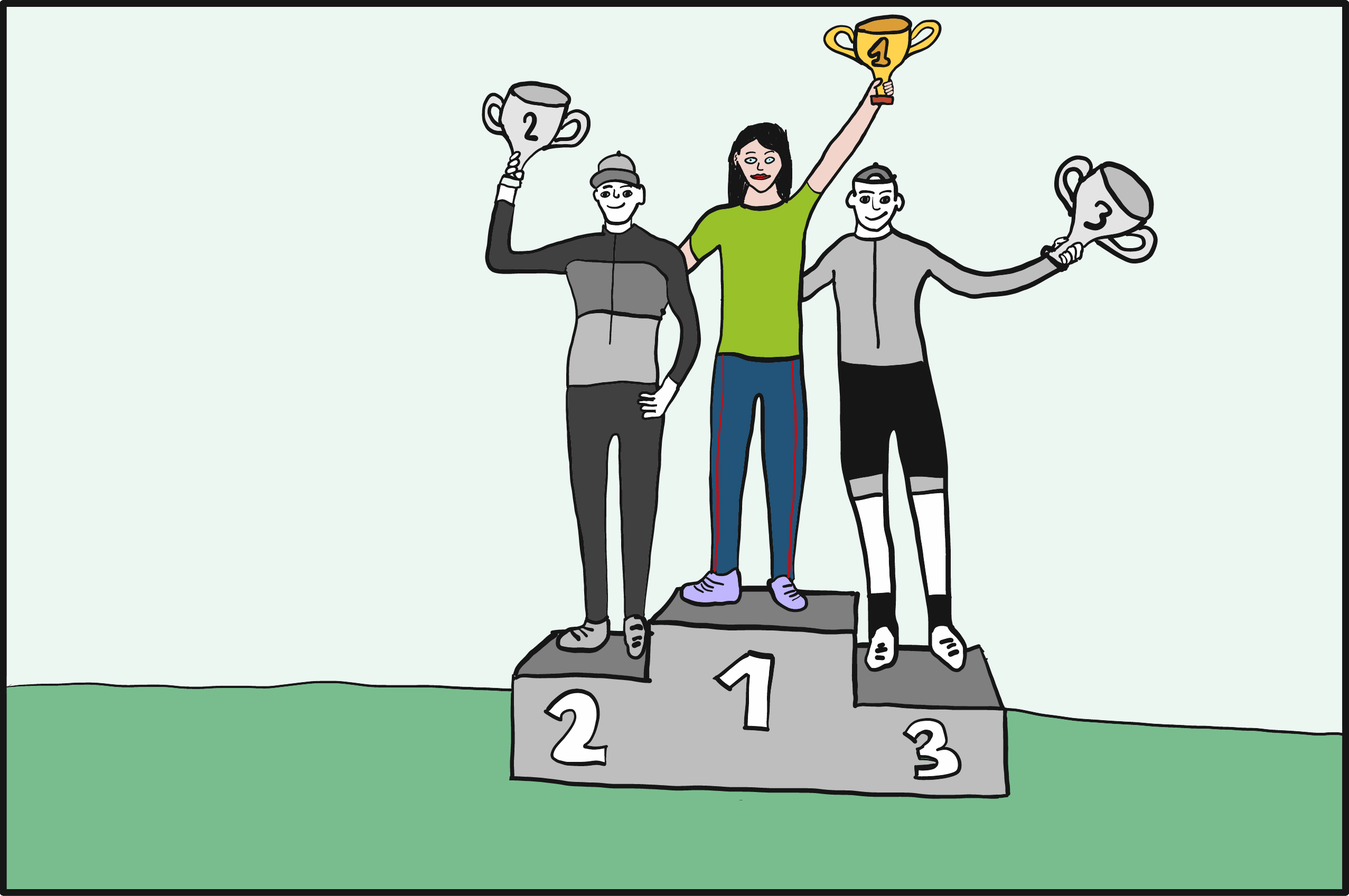
Why
- Disappointment due to bad results (competitions or trainings)
- Lack of understanding due to bad results (competitions or trainings)
- Feeling of "giving it all"
- Acquiring a higher status through sports
How
- Simplifying complex information through simple exercices
- Encourage usage and training by making it look good
- Standardising personal development through a common process (Alter Ego Creation)
- Give simple answers to widely common problems
- Give a simple step-by-step "how to"
What
- Improve competition results
- Beat the competition, become better than others and reach "greatness"
- Feel better and more clever
- Having fun
- Creating of a better future by increasing own sports level
Starting with the existing V1
Working with the first Prototype
The V1 was already existing.
So we decided to test it and start from there.
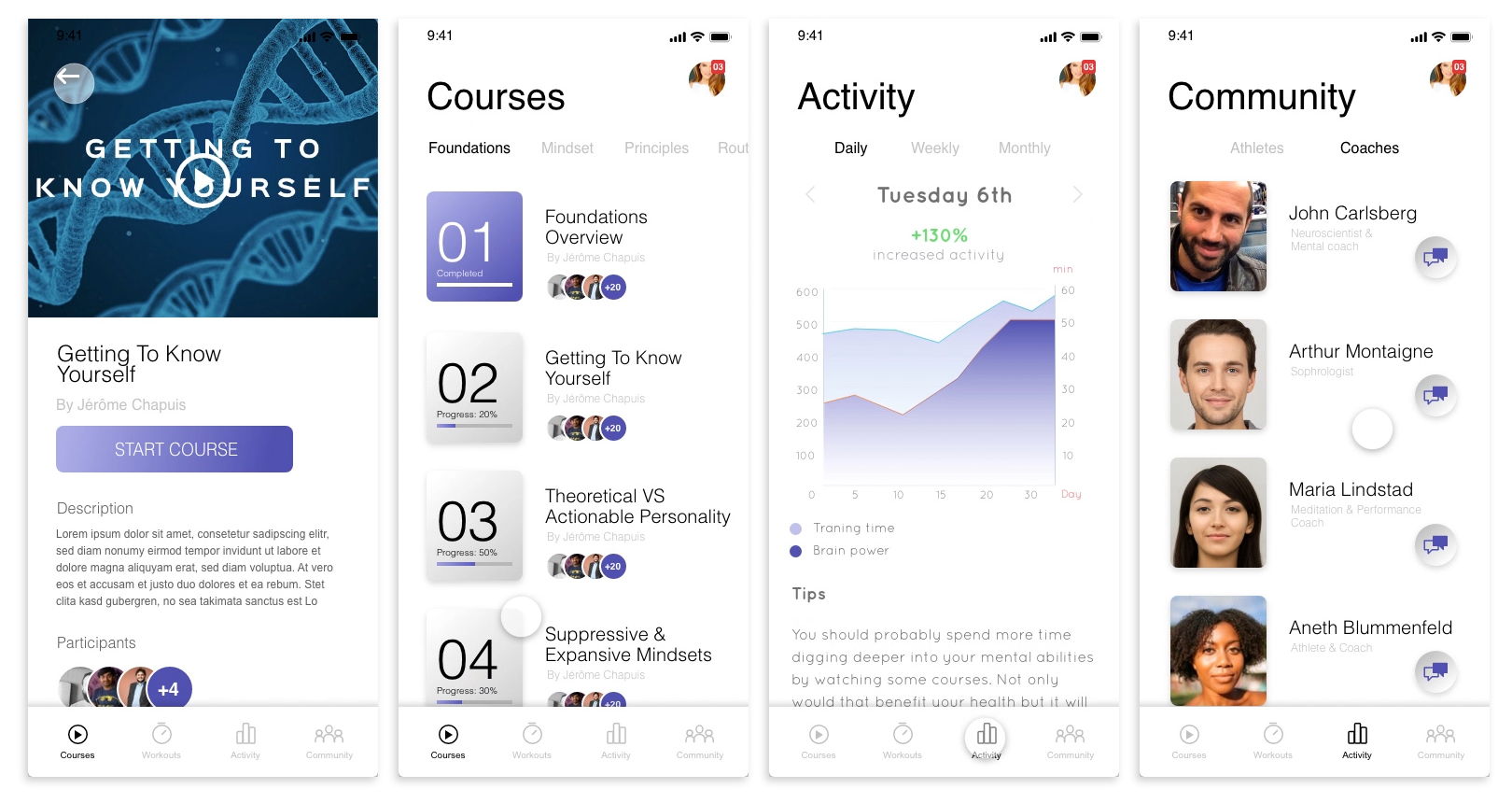
User testing allowed me to understand pain points and reframe the problem
User Testing
Identifying problems with users
From user testing, I quickly identified the need for different types of trainings depending on the situation, which weren't present in this first prototype. Also, I realised that some problems where happening with the information architecture of the app.
Through testing, I realised that some problems where happening with the information architecture of the app.
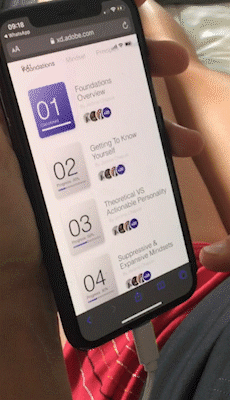
Testing, understanding, identifying and...
Reframing the problem
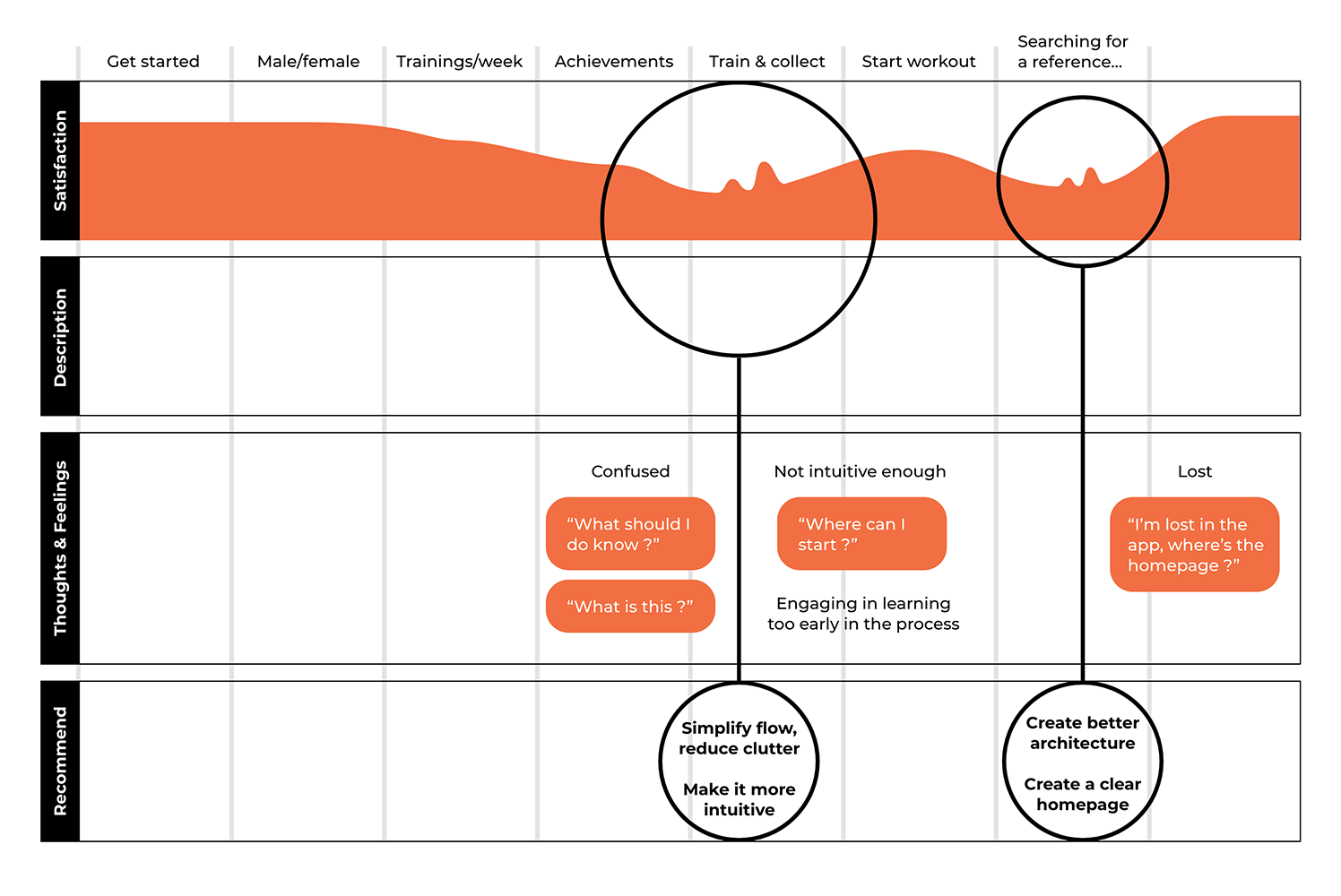
From now on, we should probably not use the word "psychology" anymore...
Make "sports psychology" sound/look better
Current perception (old)
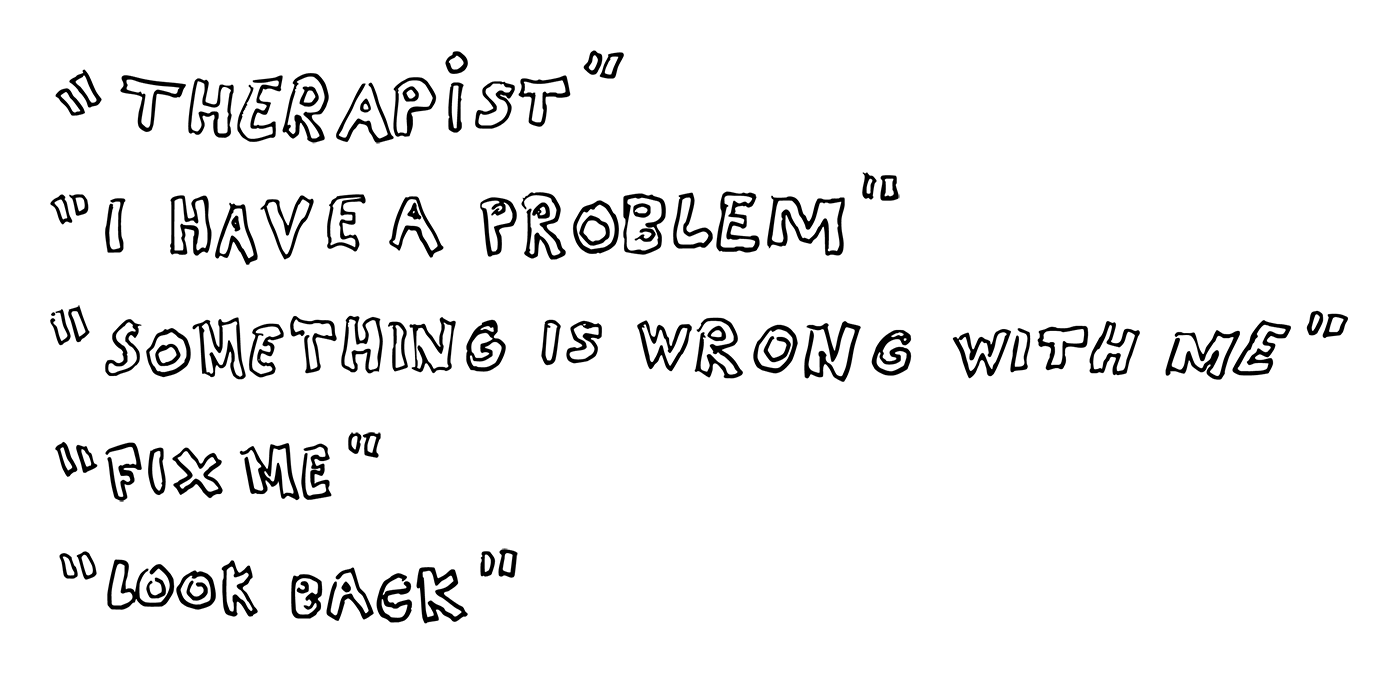

Desired perception (new)


Testing, understanding, identifying and...
Creating a new information architecture
From V1 to V2
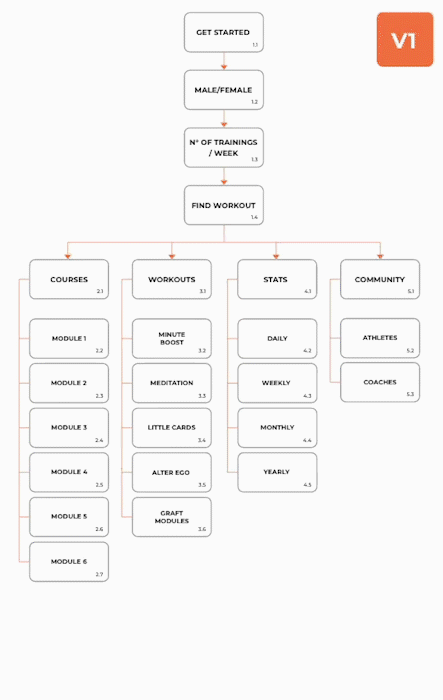
V2 Architecture
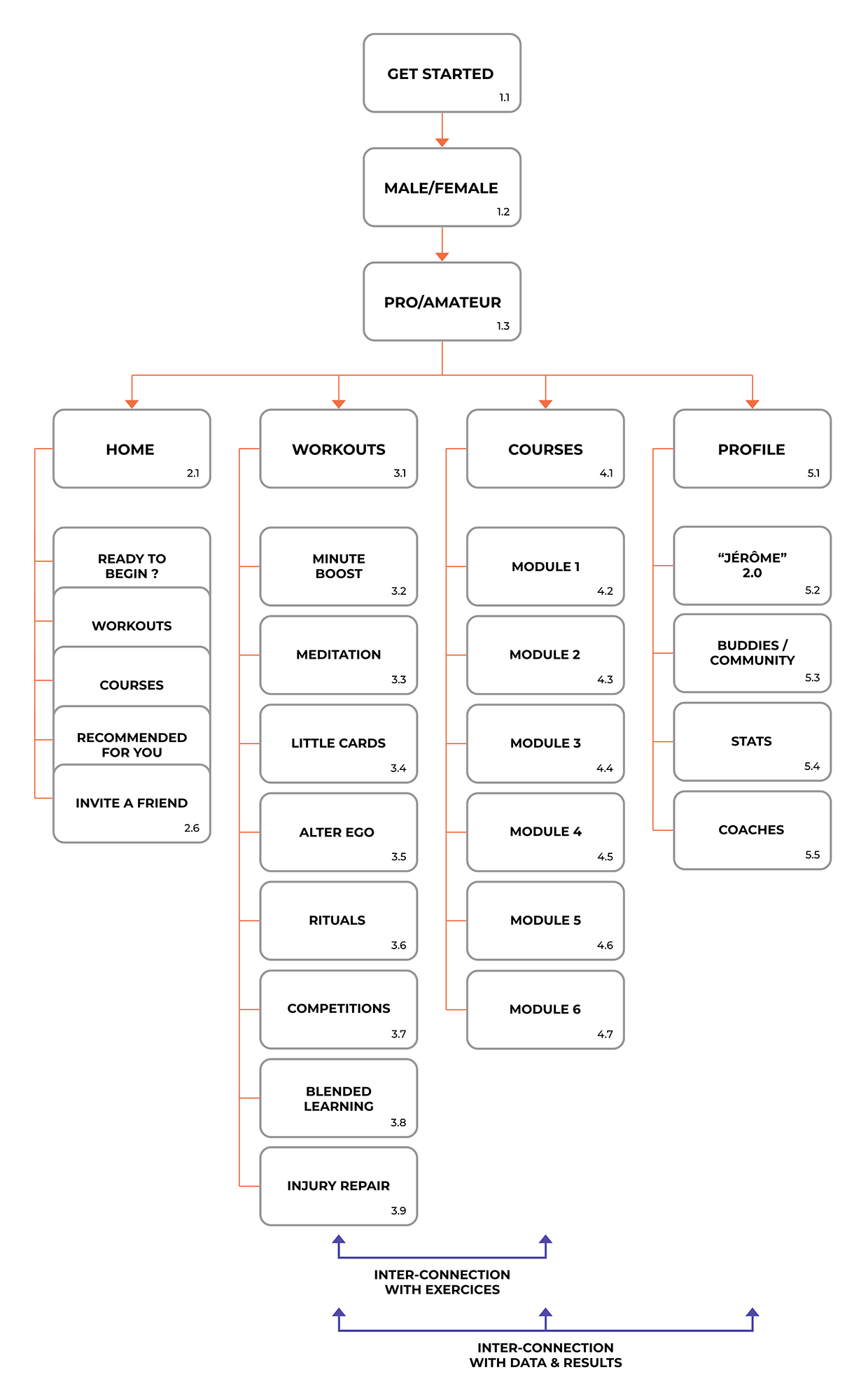
Rapid sketches and outlining the first graphical ideas
Sketches
Quick iterations from feedback
I used rapid sketch iterations for directional discussions. I took feedback from multiple athletes and I was able to begin closing in on a design.
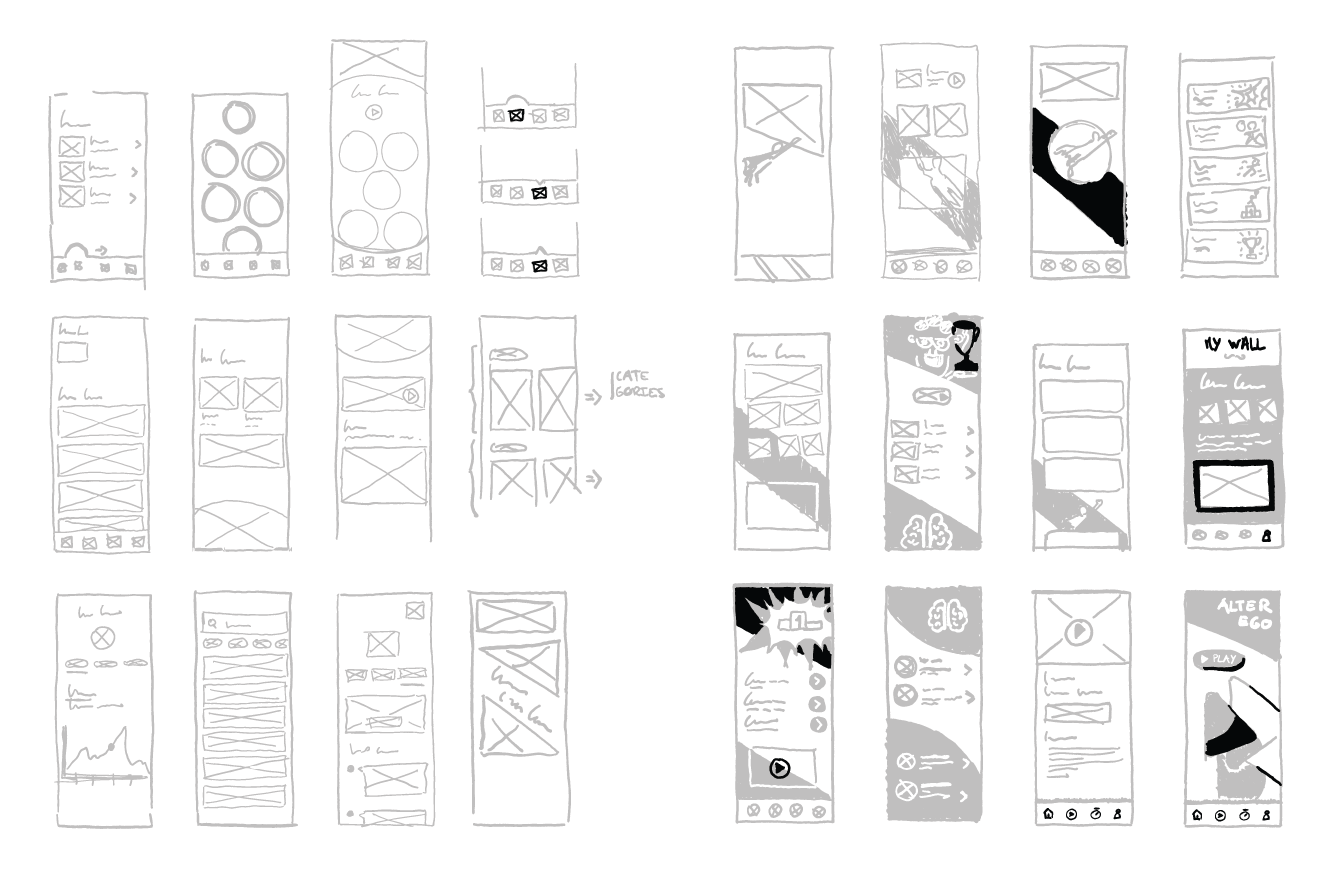
It was time to get to the next level
Illustrations and high-fidelity UI


Wrapping it all up
Final Designs
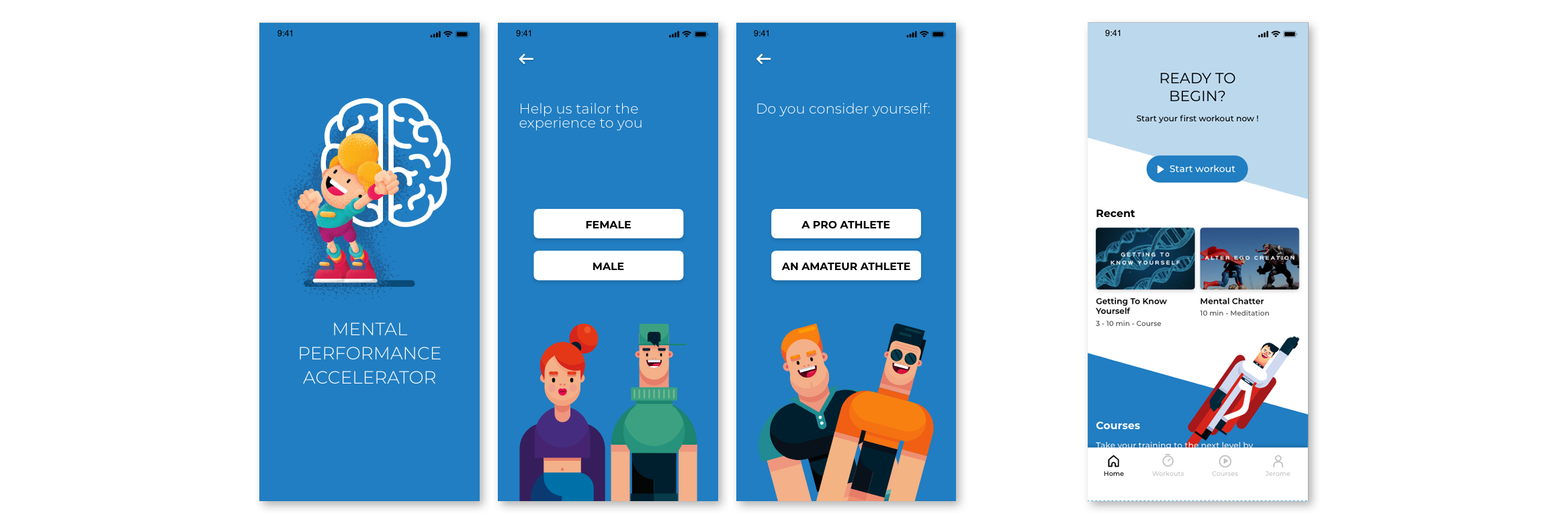
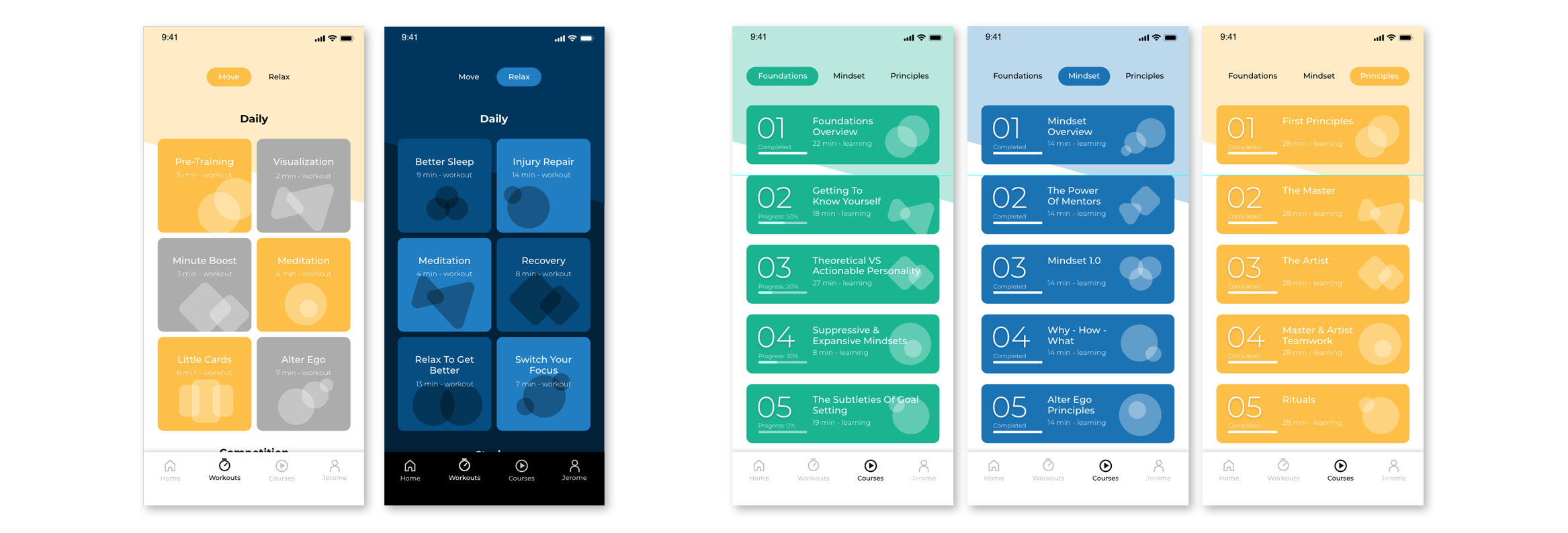
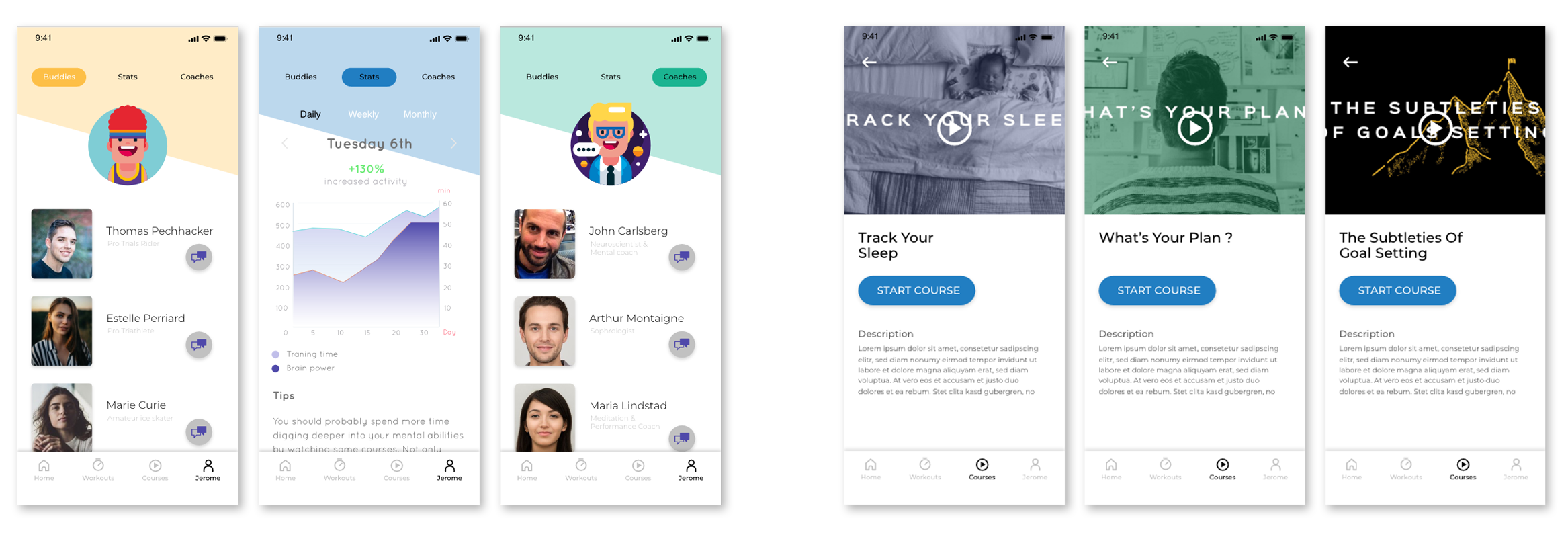
Helping athletes find the important pieces of content quicker
Highly-valuable content first
Optimising for the right metrics
Based on the research that I did at the beginning of this project, I've noticed major solutions that needed to be addressed quickly in the process in order to make the app valuable for customers. These solutions are the building blocks of my differentiation from other (similar) apps out there.
I decided to focus on a metric that could reflect that. I was able to enhance customer experience through the time users spent finding this valuable and specific piece of content inside the app.
Task spent on important and valuable tasks drastically reduced from the original app design in comparison with the app redesign.
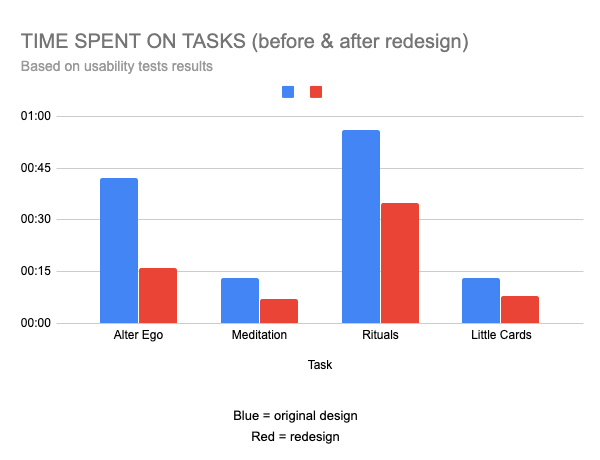
Impact
Average monthly site visits has increased by 50%
Average watch per video increased by 12% (only for videos of < 80% watch)
Unique visitors grew by 218%
Lead conversion rate went from 12.6% to 18.2% through A/B testing
What I've learned on this project
Understanding athletes mental pain-points is crucial and yet, not easy at all.
Once I grabbed a better understanding of it, I could design much more efficiently.
However difficult practising a "one-size-fits-all" mental training program, it is possible to find a common place amongst athletes to allow them to express their own unique personalities.
In designing this app, I've chosen the use of an Alter Ego to respond to that problem.
The app can take the place of a "performance assistant".
As well - through reminders - the app should remind the user to practise regularly and assist him/her in doing so.
It is possible and recommended to put in place a community of similar profiles to reinforce practise and motivate users.
The app must create a system in which the athlete goes through to exercise properly.
Different level of practice (2 in this case) can be included to train the mind.
In this app, I decided to create a "surface level" and a "deep level" depending on the time a user has available and/or his/her degree of seriousness.



